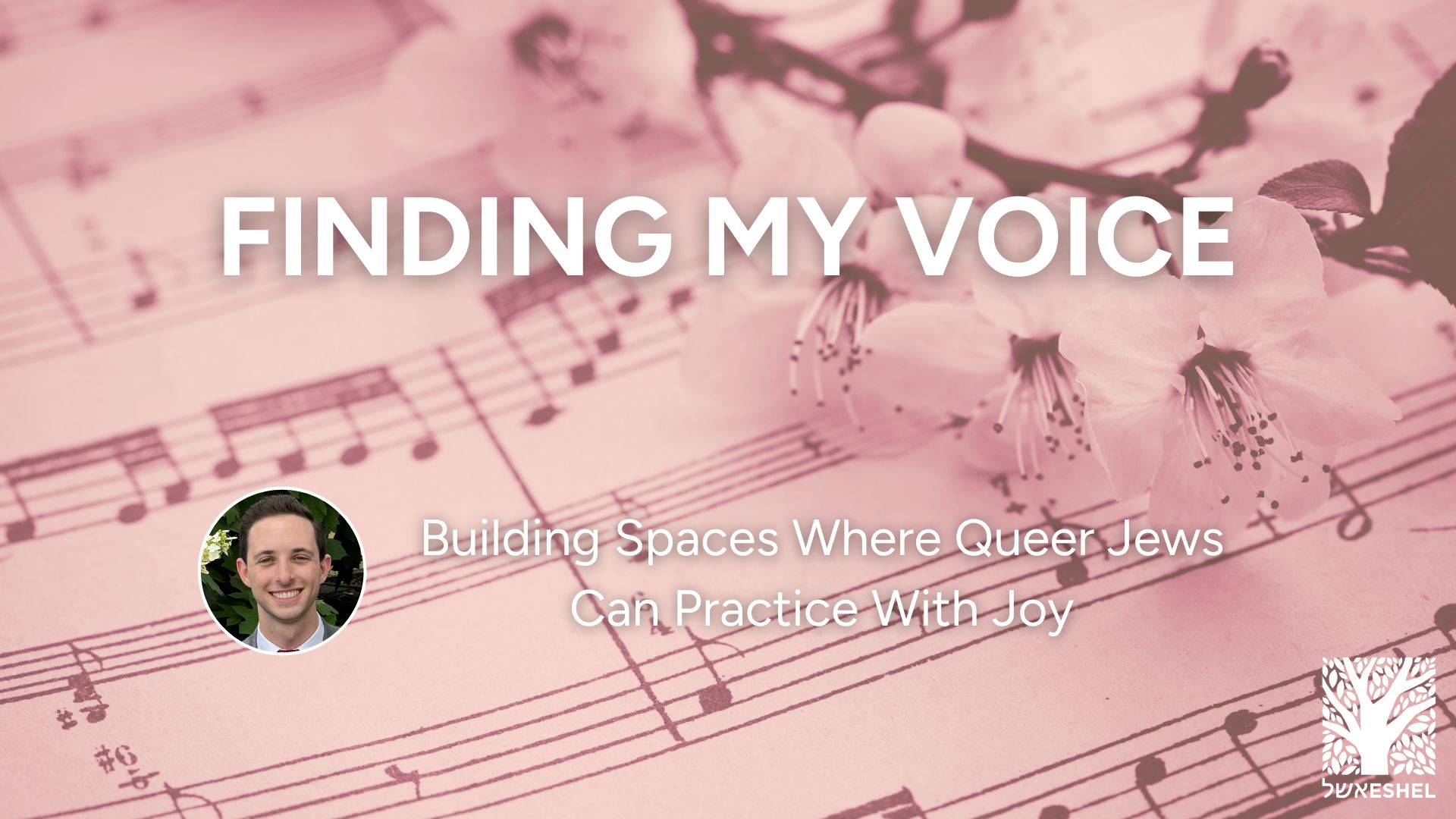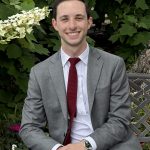
As a closeted Orthodox kid, I internalized explicit and implicit messages about my identity that led me to self-censor various forms of expression, out of fear that doing so would expose that I was gay. Weekly, this fear would manifest at my family’s Shabbat table, a time and place usually filled with great food, bonding, and joy. But at the most soulful moment of the meal, when my family began to sing z’mirot, all of that good feeling would evaporate. The sounds of my sister’s beautiful voices singing songs of praise like Yah Ribon and Tzamah Nafshi filled me with dread. I did not sing along. I would shrink and hide in fear. I wanted to join them, but I believed that if I expressed my love for singing, people would think I was gay. For years, I buried that interest, worried that people would see what I was trying to conceal. That apprehension extended even to our Shabbat table, unbeknownst to my family, even though they had never said anything to make me feel that my voice was unwelcome. But, nevertheless, my fear of outing myself through song took precedence over my relationship with hakadosh baruch hu.
This is just one way that overt and covert messages I received about being queer created isolation and interfered with my Jewish practice growing up.
Fast forward to this past May: I attended a Shabbat dinner hosted at the Manhattan JCC by Eshel, preceded by a Kabbalat Shabbat with Ohr Chayim, a Jewish queer minyan. Alongside fellow queer Jews, I sang to Hashem without the fear that had constricted my voice as a young boy. At dinner, a group began to sing z’mirot together with such gusto, you’d have thought that we were just run-of-the-mill yeshiva bochurs. It is difficult to express what a healing experience that was for me. Being in a space where my LGBTQ+ identity was embraced without question allowed me to make space once again for the dynamism and breadth of my Jewish identity. Even if just for a moment, I could envision a future where a young LGBTQ+ Jew could be seen as just a run-of-the-mill yeshiva boy.
All of this is to say: that is the power of the programming Eshel does. We foster positivity and create possibility. I am so excited to be joining Eshel in creating these new possibilities as Program Director. Having benefited so greatly from Eshel’s programming in the past, it is a particular privilege to give back by expanding and energizing our offerings for the LGBTQ+ Jewish community.
I’m looking forward to continuing the incredible work of this organization, by creating programming that continues to provide positive experiences of Jewish life and Orthodox practice for LGBTQ+ Jews of all backgrounds.
I hope you’ll join me next week for our September event: Elul Empowerment, a night of spiritual introspection in preparation for the Yamim Noraim, with text study and meditation led by yours truly! Together we’ll explore lessons from Chassidic texts which offer an uplifting and joyful vision of how to achieve divine connection in Elul, even in the face of self-doubt.
I look forward to practicing with all of you soon.

